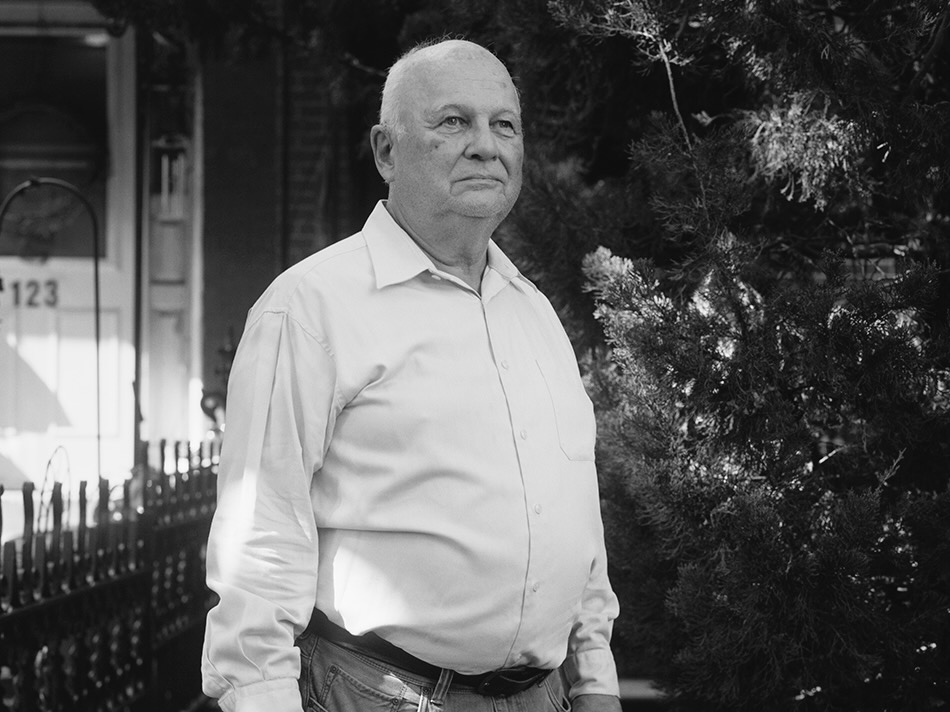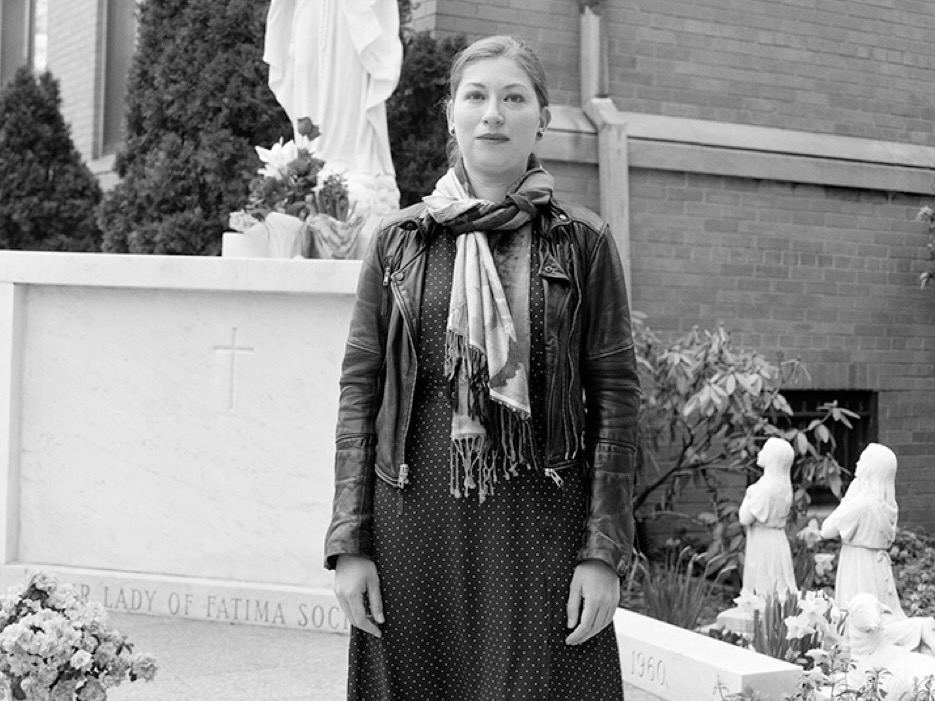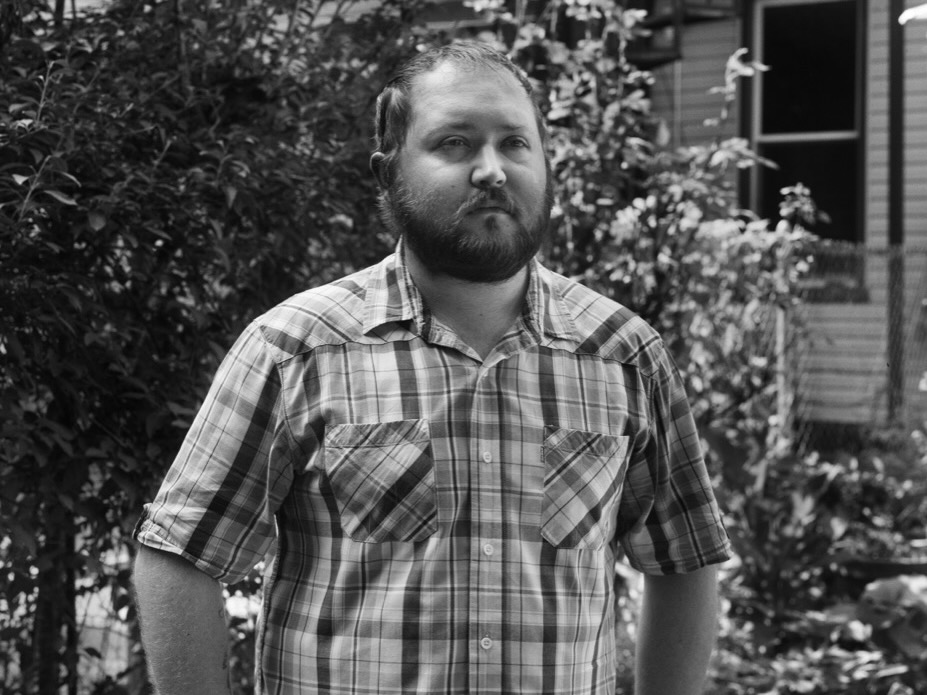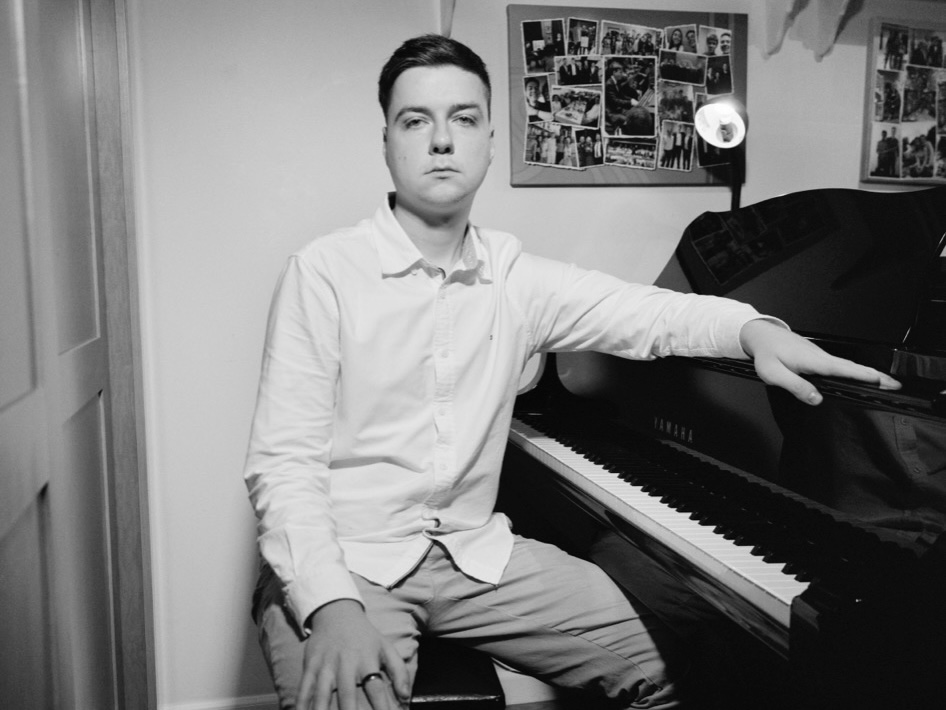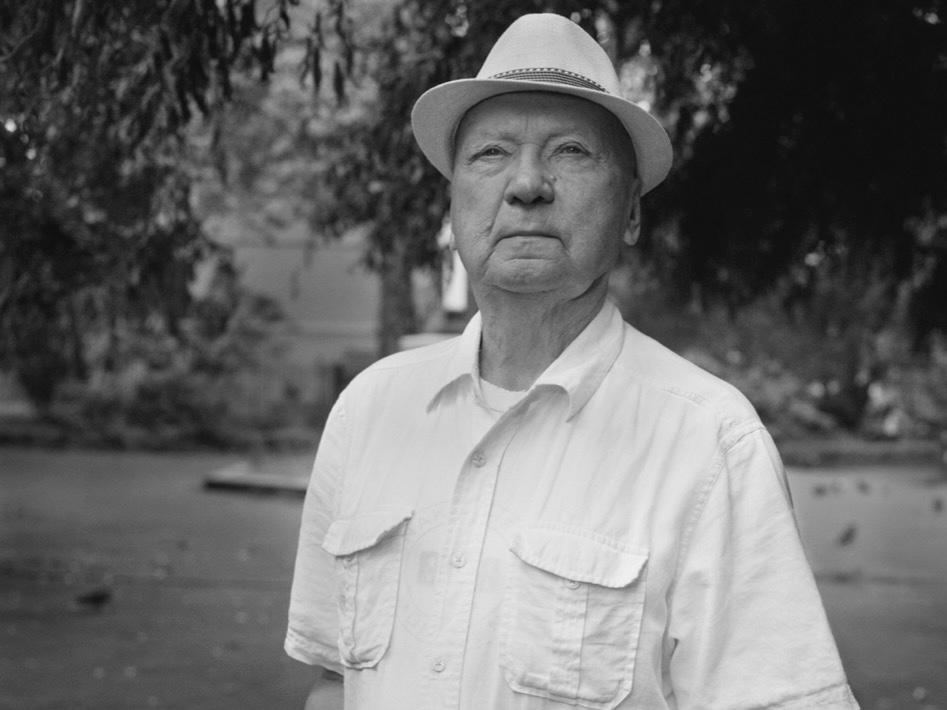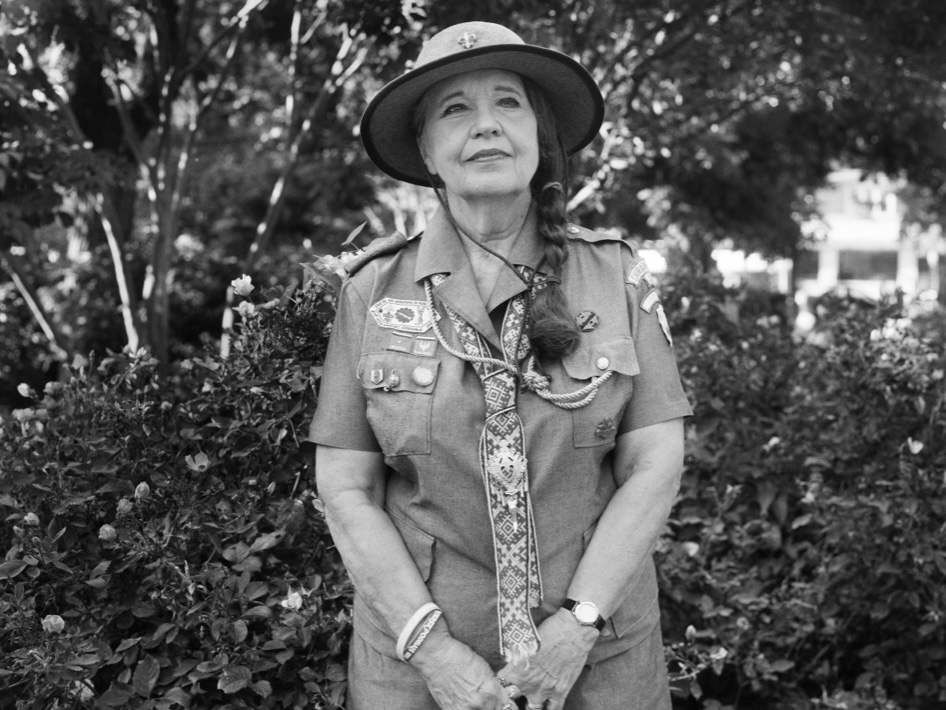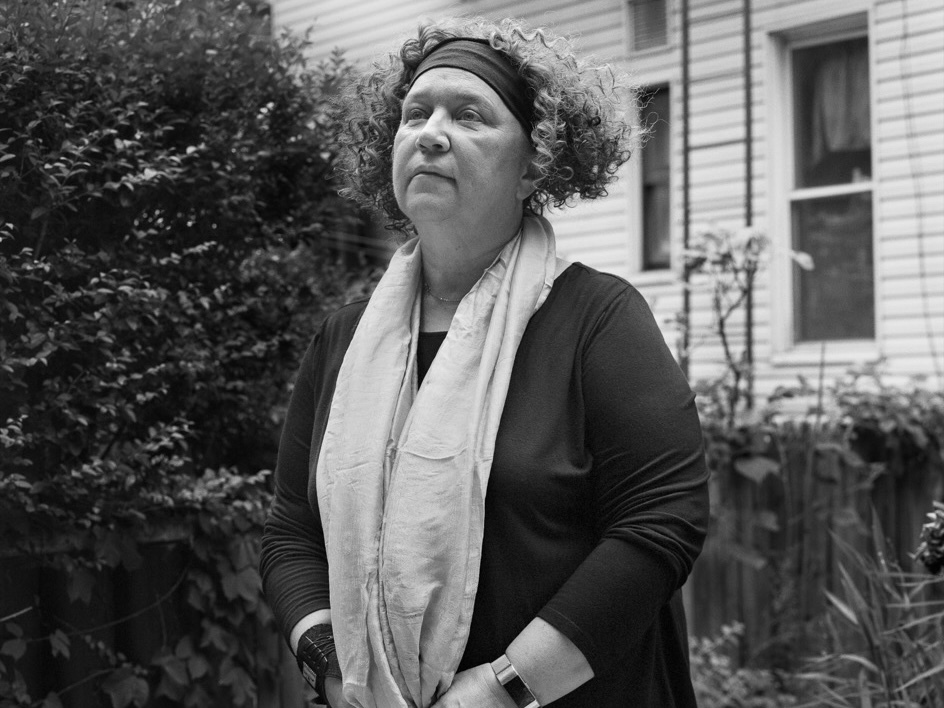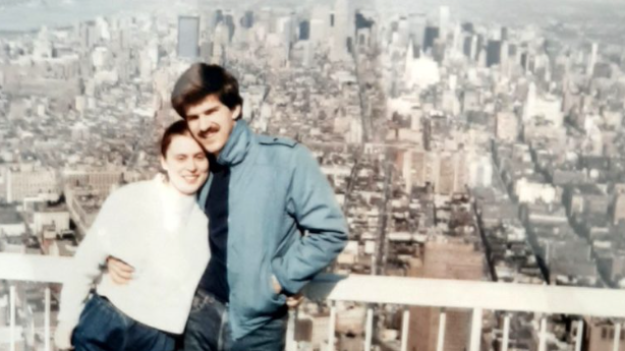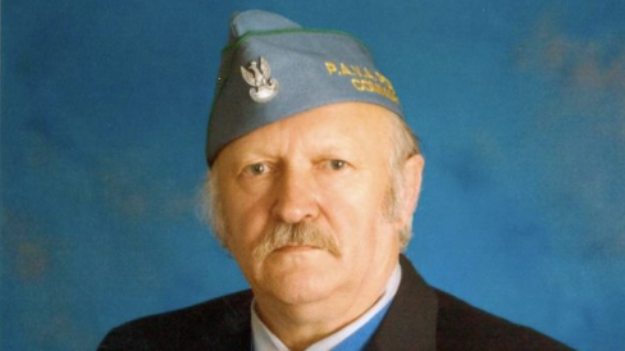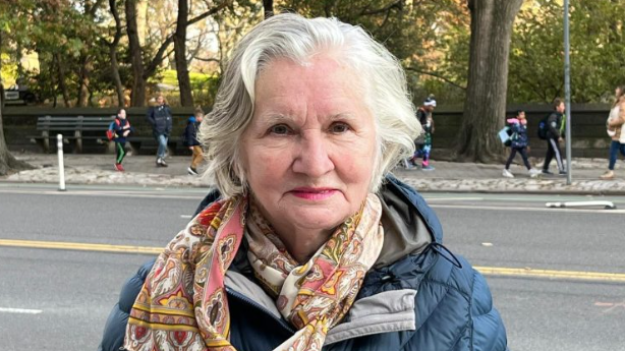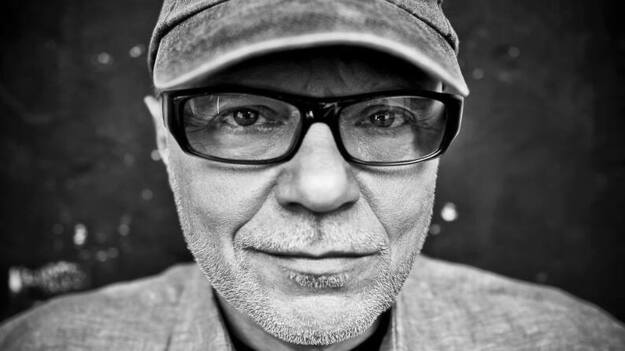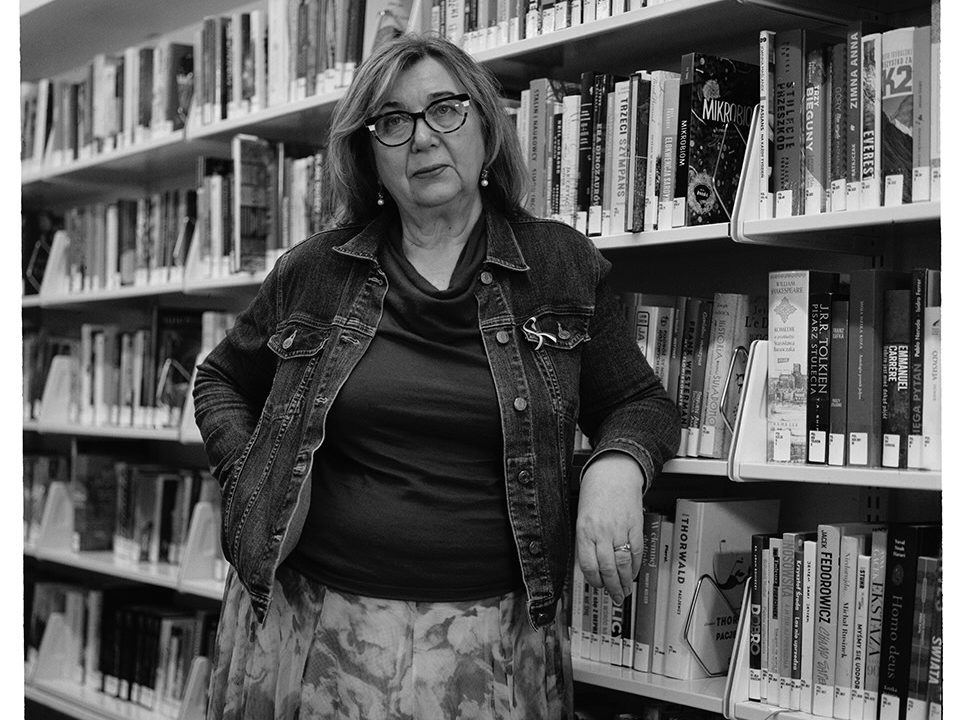
This is no longer the Greenpoint where I started working eighteen years ago. My old readers are gone, and the collection of books that I’ve been building for all these years is gone. Greenpoint is my love and my curse.
Izabela
I experienced culture shock during my first days at the library on Norman Avenue. The library was in an old one-story building with narrow windows that let in almost no light. The walls were dirty, the furniture covered with greasy dust, and inside were heavy metal desks half a century old. Compared to neat Canada, all this was a contrast that added to my depressive situation: I didn’t have an apartment yet, my things were in boxes in the car, and I didn’t know what I was doing here.
Four girls, including one Polish woman, worked as lower staff. There was a manager, too, sitting at the same desk for twenty years.
I was welcomed at this work in a completely different way than I expected. In Canada, no one would consider treating new employees with superiority, boasting about their education, and showing dislike. I felt their eyes on me and heard whispers behind my back. It was an unusual, hitherto unknown situation for them. Here in working-class Greenpoint, where Poles usually speak broken English, there is someone who graduated with a Master’s in Library and Information Studies.
The Polish books in that library were in terrible condition; well-thumbed and dog-eared, with new titles added once a year, completely without any thought behind it. Books published by Parisian ‘Kultura’ stand next to colorful feng shui guides. There were also some sports guides about bicycles, chess, and rowing. Some crumbling crime stories and (endless) stacks of romances by Danielle Steel are called here by readers of ‘Sztil.’ In addition, on the shelves were amateur-translated medical and legal dictionaries published here, on the spot, by the publishing house of Iwo Pogonowski, which were quite outdated.
A cleaning lady of Austrian origin arranged a nice seat in the boiler room – which was against the rules – and there she sat in the warmth and fell asleep. While awake, she was scrambling eggs in the kitchen, the smell spreading throughout the library. She was telling everyone that she was Schwarzenegger’s cousin.
I discovered Greenpoint in constant amazement: all those butcher and delicatessen shops where you can buy food for pennies, seven bookstores, including four on one street, drunkards gathering at the stairs to the Subway, a real haberdashery shop run by two sisters, a shop with the inscription ‘Wedel.’
I quickly started making new friends. Mrs. Stasia from ‘Antek,’ and Mrs. Grażyna from ‘Grace Spa,’ where I met Ania, who then waxed me at her home. Izabella Kobus, once a singer at the Łódź opera, then a New York cultural activist, girls from the choir. Yemenis from a small tobacco shop on the corner of Norman and Manhattan Ave streets, Mrs. Beata from the bookstore.
In fifteen years of daily living in this neighborhood, I visited the Polish church at Driggs Street maybe four times. There were many reasons for my dislike for this place, for example, selling anti-Semitic abominations in the church’s vestibule. Once in the crowd, I stood next to a friend of mine, a reader who was an excellent decorator of Easter eggs and whom I invited every year to workshops organized by the library as an instructor. The lady looked at me and said, ‘What are you doing here? I thought you were… you know… of another faith.‘ I looked at her and replied, ‘Ah, dear lady, we are all Jews.‘
Soon the news spread that a Polish woman was working in the library, who would help, translate, call the office, and sometimes even give five dollars to a homeless person. More and more Poles started to come because the library offered more services than ever before.
Maria Fung from the Library Department of World Languages found out about me quite quickly. Our first meeting must have made a good impression on her because at the beginning of the new year, three months after I started my job, Maria significantly increased the budget for Polish books and, finally, brand-new titles hit the shelves.
I also quickly started organizing cultural meetings – the first was a chamber choir performance. They became more and more famous in Greenpoint. Not only among Poles, for that matter.
On the night of March 20, when the Second Gulf War began, I was walking in Times Square with a friend visiting me in New York. Updated news from the air raid on Baghdad flashed on giant screens. Times Square was filled with the cars of television crews, and journalists from various stations rushed up to the few passers-by at this hour to conduct a street survey.
NBC questioned us. Over the next few days, almost every reader entering the library shouted, ‘I saw you on TV! Are you really from Poland?‘ As funny as it sounds, it was undoubtedly a moment of breaking the ice between non-Polish readers and me. On the other hand, I did not want to be seen only as ‘this Polish librarian.’ I tried very hard to involve this ‘American neighborhood’ in library life, to propose something that would mean a meeting of cultures. To convince them that Poland, this ‘little Poland’ where they lived, should not be perceived only through the prism of borscht in Łomżynianka and staggering drunk on the pavement. This task became more complicated when the district began to gentrify even faster in the first decade of the 21st century.
Stereotypical impressions about Poland are summed up by the following reaction of a particular hipster couple to the sight of shelves with Polish books: ‘Oh my God, books in Polish, how awesome!’. That puzzled exclamation mark, condescending kindness concealing genuine disbelief, still rings in my ears today.
Soon Polish restaurants began to close, and the bookstores dwindled to three. More often, my Polish readers came to say goodbye because rising rental prices in Greenpoint had forced them to move.
Several times I have organized Polish lessons for beginners. American spouses came, and Greenpointers, whose great-grandparents came here years ago. Among them, there were always significantly older women of Jewish origin who learned the Polish language from their parents. Poland was their hidden, unhappy love.
In the run-up to Easter, egg decorating workshops were held in the library. Crowds of American women came, not only of Polish descent. Excitedly, they scraped eggs dyed in onion shells with small knives or, imitating the instructor, applied drops of wax with a pin attached to the end of a pencil. Such activities and workshops, where you made something with your own hands, turned out to be the most effective tool in encouraging Americans to take a closer look at their Polish neighbors.
In 2017 the renovation of the library began. Soon the plans were changed, and it was decided to demolish the old building and build a new one. Then I ended up at the Brooklyn Library’s main branch at Grand Army Plaza. I felt great there – a sophisticated audience came, and I had the opportunity to work on serious research. I could also work on projects that crossed the border between Polish and American culture – I helped with the meeting with Olga Tokarczuk. And, to add to that, silence and a more friendly atmosphere among the employees.
In 2020, I returned to the state-of-the-art headquarters on Norman Ave. This is no longer the Greenpoint where I started working eighteen years ago. My old readers are gone, and the collection of books that I’ve been building for all these years is gone. Greenpoint is my love and my curse.


